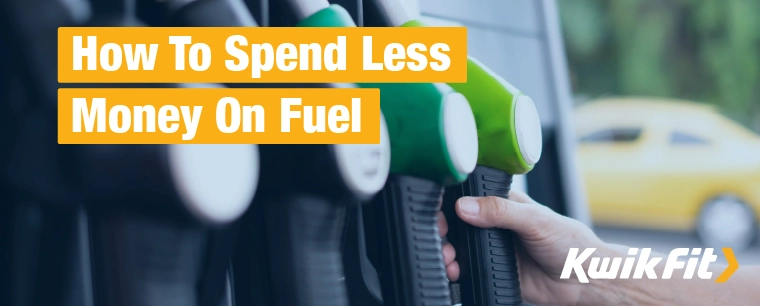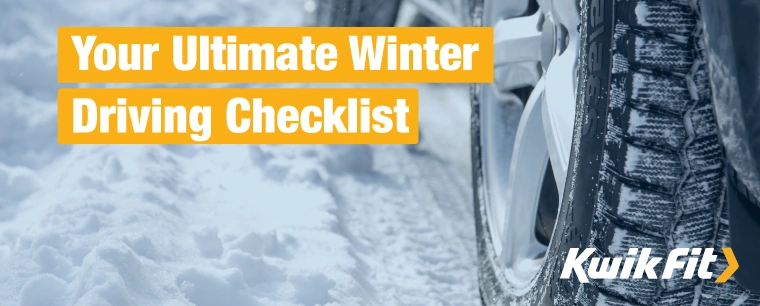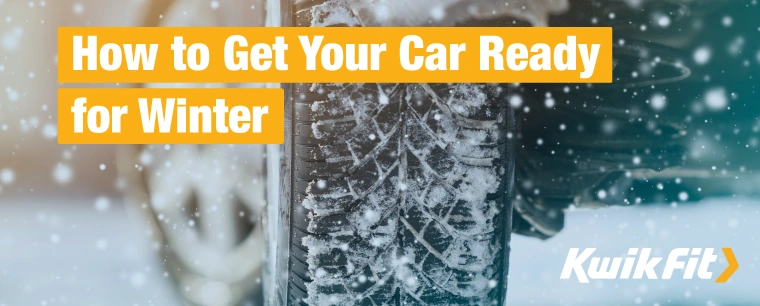How To Spend Less Money On Fuel
Jack Dreyer | Monday 30th October 2023 9:00am

Between steeper prices at the supermarket and rising energy bills, there is little scope to be spending hundreds on fuel each month.
If you find yourself grimacing each and every time you fill up your car, you wouldn’t be alone. Both petrol and diesel prices are at a record high in the UK at the moment, much to the distress of many drivers trying to make ends meet.
According to the RAC Fuel Watch, unleaded petrol is currently at 185.06 pence per litre, while diesel is sitting at 194.30 pence per litre. This is due to a number of factors, including the supply and demand of crude oil, distribution costs, exchange rates, and the global price of crude oil.
Taking that into account, it is increasingly difficult to keep your fuel costs low. So, if you’re looking to save money filling up your motor, use the tips below as a guide.
Keep on top of your tyre maintenance
Starting off strong, one of the most important factors affecting your fuel costs is tyre health. This can be broken down into two sub-categories: air pressure and tyre age.
Tyre air pressure & fuel
Firstly, if your tyres are not pumped up enough, or have the incorrect air pressure, they can be reducing your fuel efficiency. Driving on under-inflated tyres creates more drag and sees your car in greater contact with the road surface, using more fuel to move the vehicle.
According to recent research from the charity Tyre Safe, if your tyres are underinflated by 20% (that’s 6psi) you end up using between 3 and 10% more fuel! That’s an extra £1 for every 50 miles driven at 50mph. And it all adds up!
See what the correct pressure for your car’s tyres should be in your owner’s manual and aim to maintain this pressure. Find out how to fill up your tyres correctly in another of our handy guides here.
Tyre age & fuel
Secondly, how old your tyres are can affect how much you’re spending on fuel month on month. As we mentioned in our spotlight on fuel efficiency, tyres account for up to 20% of your fuel consumption and older tyres are far less efficient and reliable.
All EU tyres produced after 2021 will have a label ranking them on efficiency from A (the best) to E (the worst). Newer tyres are much more likely to not only be safer but have a greater efficiency rating too.
Wheel alignment
Another major factor affecting how much you spend on fuel is the wheel alignment. Without an annual wheel alignment check, your tyres may not wear evenly, causing them to wear down quicker, producing more drag and using more fuel! With the correct wheel alignment in place, up to 12,000 miles can be added to your tyres’ lives!

Offload unnecessary weight
This next one sounds obvious but shaving off the pounds on your vehicle also shaves off the pounds spent on fuel! If you find yourself always carrying heavy loads or unknowingly having a boot full of junk, sort it out!
Unnecessary items such as charity donations, tools, sports equipment, and things leftover from your holiday all count. According to Duncan McClure Fisher, CEO of MotorEasy, “an extra 50kg of weight in a vehicle reduces miles per gallon by up to 2%, so if you’ve got four sets of golf clubs in there you’ll be paying around £10 extra per week for fuel.”
Roof racks also count! According to the Energy Saving Trust, a large roof rack can add up to 16% to a car’s fuel consumption (when driving at 75 mph), while a roof box adds a whopping 39%!
Change your filling-up habits
A lot of money can be saved on fuel by just making a few simple changes to your filling-up habits.
Did you know that it is cheaper to half-fill your petrol tank every time? Ok, so this one is bound to start arguments at the dinner table, but continuing with the theme of weight: your car weighs less when it is half full than with a full tan, right? So, by half filling it every time, it is much more fuel efficient (though you will have to pop to the fuel station more often).
Another way to avoid fuel wastage is to tighten your petrol cap. Like most liquids, when petrol is too hot, it will evaporate. A loose petrol cap may see some fuel being lost, so stay vigilant with that one; every little help!
For more fuel-saving tips that focus specifically on your driving habits, head over to another of our blogs here.
Keep moving
One of the most underrated methods of saving money on fuel is to actually keep moving! A phenomenon called ‘engine idling’ can be your worst enemy when it comes to fuel conservation. We’re all guilty of it, idling while in queues of traffic or starting up the car and leaving it running on a chilly morning.
However, not only is this bad for your wallet, but it’s bad for the planet too. A stationary vehicle produces far more emissions than a vehicle in motion. As a general rule of thumb: always switch the engine off if you are stationary unless you have a more modern car that does this for you with stop-start technology.

Avoid premium pumps if possible
While, for some vehicles, premium petrol — that’s super unleaded — is a necessity, for many, it is just an optional extra aimed at improving engine health. This luxury, though, comes at a cost since premium fuels are always more expensive.
Putting premium petrol in a regular car, however, has not actually been proven to heighten performance. So, if you’re looking to save money, steer clear of this option the next time you fill up. To find out more about the difference between premium fuels and regular fuels, head over to another of our blogs here.
Cut down on the luxuries
In a similar vein, costly luxuries that affect your fuel consumption also extend to inside the car. Add-ons such as heated seats and air conditioning all play a part in how much fuel you use, as do headlights and de-misters.
So, ask yourself when driving, “Do I really need to turn my headlights on yet?” (be safe with this one) or “Can I go without a heated seat?”, and you’ll find your fuel going further before you know it. What’s more, look after these elements and keep them efficient so that, when you do need to use them, they run smoothly and aren’t wasteful. You can book in for a free air conditioning health check with Kwik Fit here.
According to Endsea, using air conditioning in a car consumes between 0.2 and a whole litre of fuel for every 60 miles travelled. That’s roughly £1.59! If you’re going at lower speeds of under 30 mph, it might be wise to just open the windows instead of relying on the air con.
Consider going electric!
Ok, we know this one is a large step. But, if fuel prices continue to rise, you might like to join the electric car ‘revolution’. While the upfront costs are quite significant (especially when including the charging point).
So many people are converting to electric cars for good reason: because they save on fuel. You can find out more about electric cars and fuel in another of our blogs here.
Stay on top of your car maintenance with Kwik Fit
Lots of these fuel-saving tips revolve around keeping your vehicle — and its components — in a good, road-worthy condition. And this has never been easier than with Kwik Fit’s variety of services and free health checks.
So, if you’re concerned that the condition of your vehicle’s tyres, wheel alignment, or other parts, might be costing you more for fuel, contact your local Kwik Fit centre today.
Any facts, figures and prices shown in our blog articles are correct at time of publication.
Featured Articles
Is Your Car Battery Ready for Winter?
Monday 11th November 2024
Is the UK on the verge of ‘the coldest winter for 50 years?’ Even if El Niño doesn't hit the UK this winter, reduce the risk of a winter breakdown by making sure your car battery is winter-ready.
Your Ultimate Winter Driving Checklist
Monday 31st October 2022
Driving in the colder months presents many challenges. Breakdowns are far more common in winter, so make sure you’re prepared with these essentials.
How to Get Your Car Ready for Winter
Wednesday 28th September 2022
Winter can be a harsh season for your car but planning ahead by carrying out some basic maintenance and packing some essential kit should help you avoid a winter breakdown.







